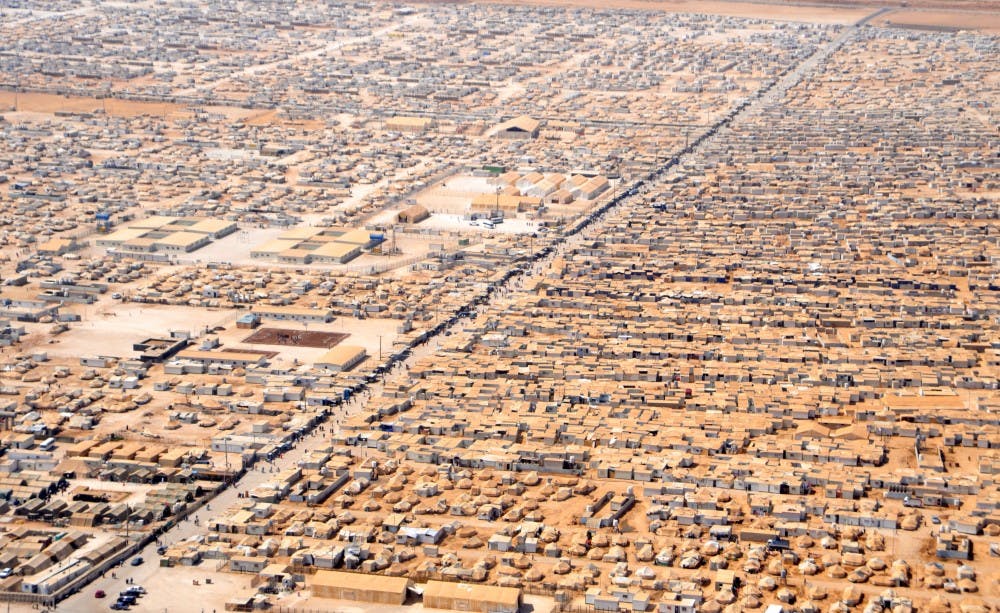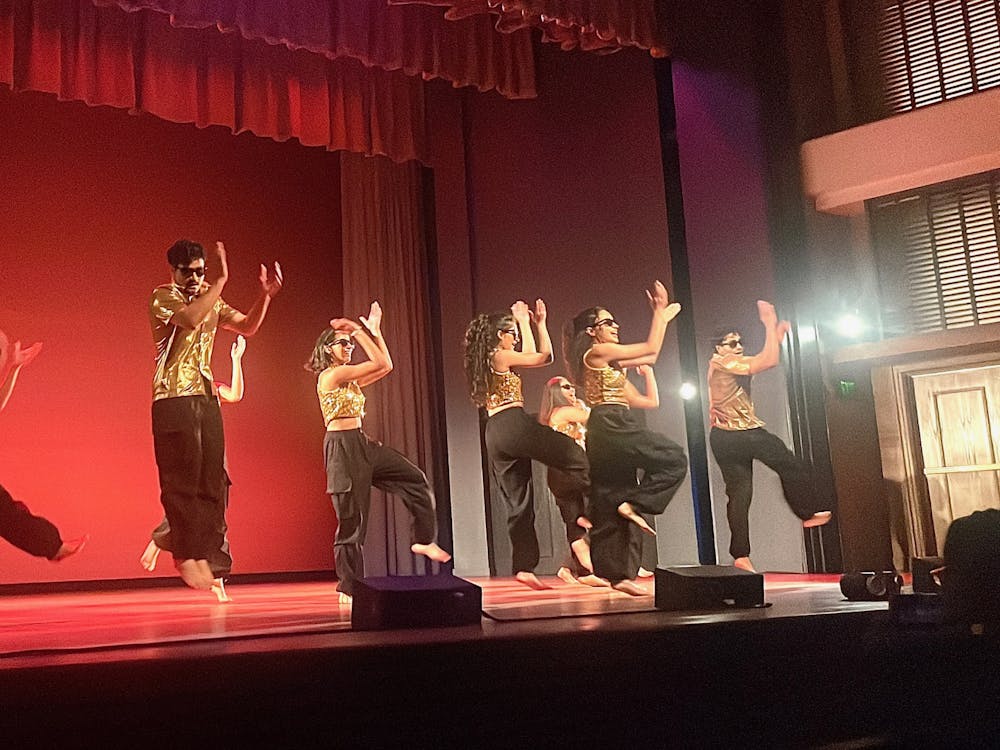Rochelle Davis, academic director of the Center for Contemporary Arab Studies at Georgetown University, visited campus Wednesday to discuss her decades of research in the Middle East and the dire situation of millions of Syrian refugees scattered throughout the region.
Davis, who spoke to a packed Carole Weinstein International Center Commons, promptly established that a central theme of her talk would be refuting the notion of a senselessly violent Syria, brought on by a sensationalist American media. Davis sought to focus not on the few Syrians who commit grisly acts against their fellow humans, but the many Syrians who have their peaceful lives impeded upon by gross misinterpretation of religious doctrine. She said her focus was especially important for students during the recent period of such great concern about terrorist organizations such as ISIS. However, though much of the Syrian conflict may seem like a recent phenomenon, Davis also said the uprising against the corrupt Syrian regime had been brewing since early 2011.
“But, if we all of a sudden today peg the Syrian Civil War as starting in 2011, we miss…a year and a half to two years of nonviolent resistance to the regime,” Davis said. The footage circulating of lines of dead bodies and gruesome beheadings only began to surface recently, she said, as for years before that, Syrian nationalists had hoped to voice their concerns through more civil actions. However, the government was simply unwilling to listen, which led to a mass exodus of Syrians over the last few years.
“The people had really important demands for freedom of expression, for democracy, for freedom of political organization, and that needs to be at the center of any conversation about Syria,” she said.
Davis showed slides of anti-government graffiti, pacifistic crowds equipped with handwritten signs and local freedom posters to underscore the nonviolent efforts of the Syrian people to make a positive difference in their country.
Davis said refugees were people who had escaped to outside of their country’s borders, and that those who were displaced from their homes but still remained in their home country were known as “internally displaced persons.”
So, while there may only be 3 million officially registered Syrian refugees, it may be more accurate to report on the 10 million to 12 million Syrians who have been displaced from their homes. In a nation of roughly 22 million people, those numbers account for half of Syria’s entire population, most of whom have been affected over the past year or two.
In fact, though Syria today has more than 3 million registered refugees, more than 2.5 million of them have only had to flee their homes within the past two years. “In 2013, we start to see an intensification of the violent conflict, in part due to the rise of [the jihadist organization] we now know as ISIS," she said.
She pointed to the effect that the mass emigration is having on other countries all around Syria, which are accepting hundreds of thousands of Syrians into their lands. Lebanon, which borders the southwest of Syria, has a population of approximately 4 million, including more than 1 million registered Syrian refugees. Davis said this made roughly one in every four persons living in Lebanon a recently displaced Syrian.
Davis initially became interested in Middle Eastern affairs as an undergraduate at University of California, after spending three years in Cairo as part of a study abroad program. She initially did most of her work in Arabic language and literature, then later switched to anthropology at the Ph. D. level, citing a newfound interest in people rather than linguistic and literary side. Her undergraduate Arabic studies and travels throughout the Middle East have rendered her fluent in Arabic and earned her recognition as a leading scholar on the Middle East among American academia. Her encounters have also enabled her to pen books about the conditions she has viewed, including 2010’s "Palestinian Village Histories," about the destruction of more than 400 Palestinian villages in Israel and the subsequent displacement of thousands of Palestinians after Israel was awarded statehood in 1948.
Rania Kassab Sweis, assistant professor of anthropology and international studies at University of Richmond and a former colleague of Davis’ from the CCAS at Georgetown, was instrumental in organizing for Davis to kick off the sociology and anthropology department’s Fall Speakers Series 2014.
“When I learned that she was doing this new ethnographic project, my first instinct was to invite her to the campus,” Sweis said in an interview prior to Davis’ lecture. “She’s a very prolific and well-known scholar in Middle East studies. I thought that that’s something that this campus community can benefit from.”
Enjoy what you're reading?
Signup for our newsletter
Sweis said the plans to have Davis visit campus were actually made well before media images of ISIS and Syrian unrest began flooding international airwaves. Though many Americans had previously been unaware of growing tensions in Syria, Davis was witnessing the discord first-hand and knew the message needed to be relayed back to the United States.
Sweis was also excited for the perspective that Davis might be able to provide for students interested in seeing the sides of Syria that do not always make it onto the news.
Anna Ellison, a sophomore majoring in Arabic, said she made a point to follow what was happening in the Middle East, and said she enjoyed how the conversation focused on the refugees, rather than the oppressors. “Rather than focusing our attention on ISIS or Assad, she was speaking about the ones most affected by [the Syrian turmoil] – the refugees,” Ellison said.
She said she was particularly moved by Davis’ words on how the Syrian refugees viewed themselves. “It really struck me when she talked about…a man being interviewed about what he had missed most [since the conflict began]. He said that, more than anything, he missed his dignity. I think that statement says it all about what Syrians are going through.”
Contact reporter Jacob Steinfield at jacob.steinfield@richmond.edu
Support independent student media
You can make a tax-deductible donation by clicking the button below, which takes you to our secure PayPal account. The page is set up to receive contributions in whatever amount you designate. We look forward to using the money we raise to further our mission of providing honest and accurate information to students, faculty, staff, alumni and others in the general public.
Donate Now



